Mitsubishi ASX VS Suzuki S-Cross
In the competitive realm of compact crossovers, the Mitsubishi ASX and Suzuki S-Cross offer distinct value propositions for discerning buyers. The ASX impresses with its robust design and spacious interior, making it a practical choice for families and adventure seekers alike. Meanwhile, the Suzuki S-Cross stands out for its fuel efficiency and advanced safety features, appealing to those who prioritize economy and peace of mind on the road.
Mitsubishi ASX
The Mitsubishi ASX presents itself as a compact crossover that combines practicality with style. Its sleek design and versatile interior make it an appealing choice for both urban and rural settings. With a focus on providing a comfortable driving experience, the ASX also offers a range of modern features that enhance connectivity and safety.
detailsSuzuki S-Cross
The Suzuki S-Cross emerges as a versatile crossover, blending urban agility with a rugged presence suited for diverse terrains. Its design combines sleek, modern aesthetics with practicality, offering a spacious interior that comfortably accommodates passengers and cargo for varied journeys. Drivers will appreciate the advanced technology features that enhance both driving pleasure and safety, making the S-Cross a well-rounded option for those seeking reliability and style in a compact SUV.
detailsA Clash of Compact SUVs: Mitsubishi ASX vs. Suzuki S-Cross
In the ever-expanding world of compact SUVs, the Mitsubishi ASX and Suzuki S-Cross stand out as formidable contenders. Both models cater to drivers seeking performance, practicality, and modern technology, but they take different approaches to achieve that balance. Let's delve into the technical specifications, features, and innovations that define these two vehicles.
Engine Variants and Performance
The Mitsubishi ASX offers a variety of engine options for 2024, including petrol, petrol MHEV, and full hybrid variants. Notably, the power outputs range from 91 HP to a more robust 158 HP depending on the engine configuration. The ASX's torque figures reach a peak of 270 Nm, allowing for competitive acceleration, with some models achieving 0-100 km/h in as little as 8.5 seconds.
On the other hand, the Suzuki S-Cross also showcases a diverse range of engine choices, primarily focusing on full hybrid and petrol MHEV types. Its power output varies, topping at 129 HP with a torque of 235 Nm. The S-Cross is no slouch either, achieving 0-100 km/h in a respectable 9.5 seconds. While the ASX emphasizes higher horsepower, the S-Cross provides a more balanced torque delivery for city driving and highway performance.
Fuel Efficiency and Emissions
Fuel efficiency is a crucial consideration for buyers, and both vehicles offer commendable figures. The ASX has a consumption range of 4.7 to 6 L/100 km, depending on the engine and configuration. This impressive efficiency is matched with a CO2 emission class ranging from C to D, making it a responsible choice for eco-conscious drivers.
Meanwhile, the S-Cross shines with even lower consumption rates, hovering between 5.1 and 5.8 L/100 km. It boasts a slightly better CO2 emission output, ranging from 116 to 131 g/km, contributing to a more environmentally friendly footprint. Those who prioritize sustainability may find the S-Cross slightly more appealing in this area.
Dimensions and Practicality
When it comes to dimensions, the ASX measures 4239 mm in length, 1797 mm in width, and 1575 mm in height. This provides a spacious interior for passengers and cargo alike, including a trunk capacity of up to 484 liters. Its design strikes a balance between agility and roominess, ensuring a comfortable ride.
The Suzuki S-Cross, slightly larger at 4300 mm in length, 1785 mm in width, and 1580 mm in height, offers a trunk capacity of 430 liters. While the difference in cargo space is marginal, the added length can aid in cabin comfort, particularly for rear passengers. Both vehicles accommodate five passengers, making them suitable for family outings or weekend adventures.
Advanced Features and Technology
In terms of technology, the Mitsubishi ASX embraces modern innovations with features like a user-friendly infotainment system, advanced safety technologies, and available hybrid options. Mitsubishi focuses on enhancing driver comfort and connectivity with a range of tech-savvy features that include touchscreen displays and smartphone integration.
The Suzuki S-Cross counters this with its own set of innovations, particularly its all-wheel-drive variant that enhances performance in diverse driving conditions. The S-Cross incorporates various driver assistance systems to bolster safety, which reflects Suzuki's commitment to providing a reliable and secure driving experience.
Final Verdict: Which SUV Reigns Supreme?
Deciding between the Mitsubishi ASX and Suzuki S-Cross ultimately depends on individual preferences and needs. The ASX offers robust engine choices and slightly higher performance metrics, making it an excellent pick for those who value power. Alternatively, the S-Cross presents remarkable fuel efficiency and a wealth of hybrid options, appealing to eco-conscious consumers.
In the end, both compact SUVs deliver solid performance, practicality, and innovation, promising to cater to a wide array of drivers seeking their next adventure on the roads.
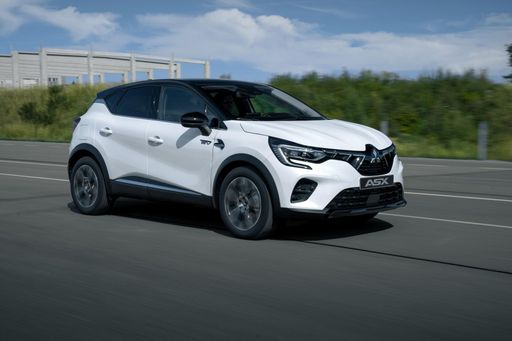 @ Mitsubishi
@ Mitsubishi
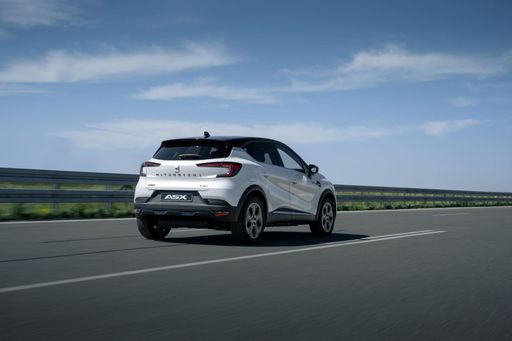 @ Mitsubishi
@ Mitsubishi
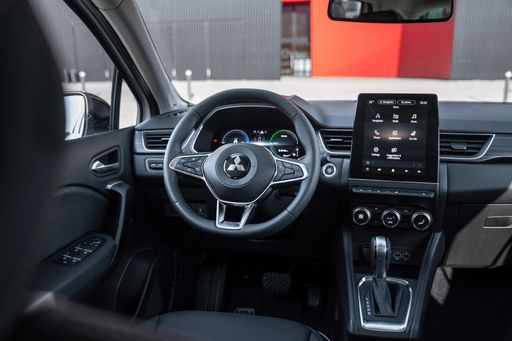 @ Mitsubishi
@ Mitsubishi
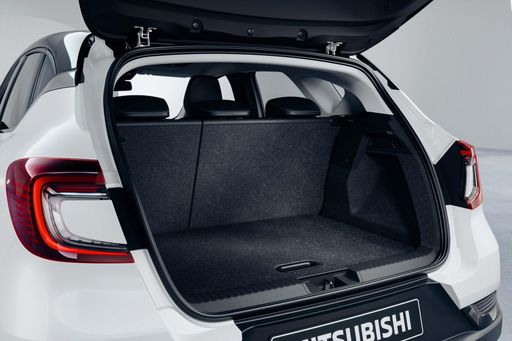 @ Mitsubishi
@ Mitsubishi
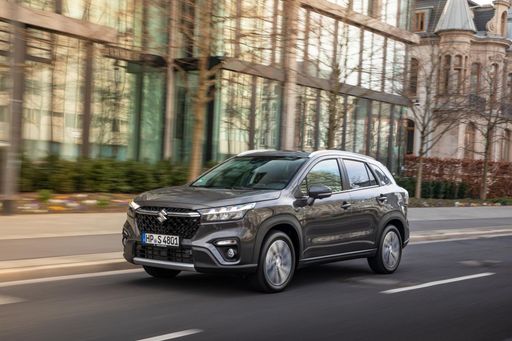 @ Suzuki
@ Suzuki
 @ Suzuki
@ Suzuki
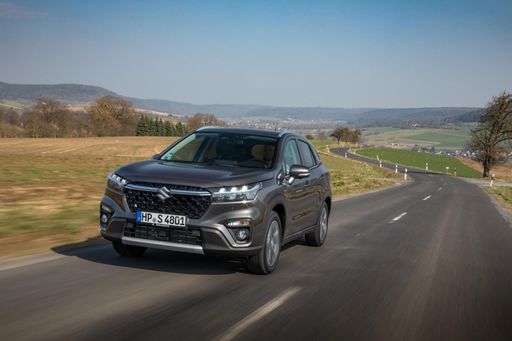 @ Suzuki
@ Suzuki
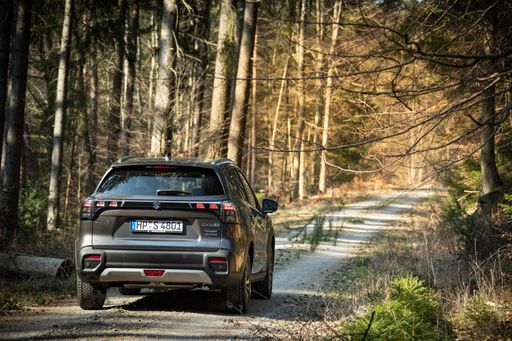 @ Suzuki
@ Suzuki
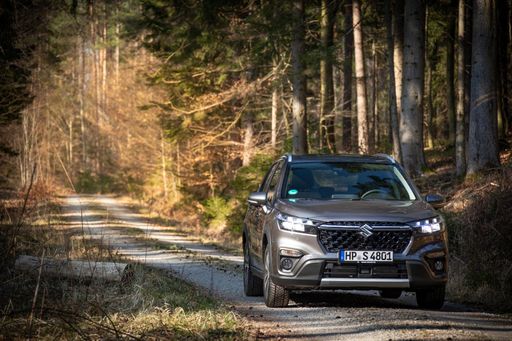 @ Suzuki
@ Suzuki
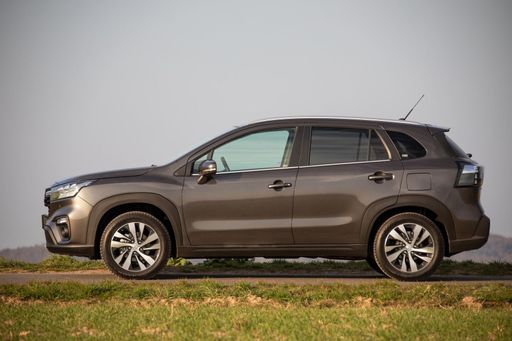 @ Suzuki
@ Suzuki
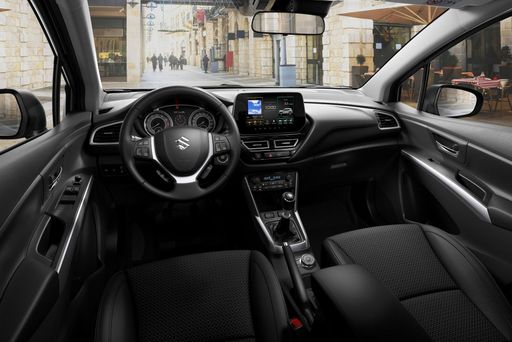 @ Suzuki
@ Suzuki

|

|
|
|
|
Costs and Consumption |
|
|---|---|
|
Price
about 22200 - 34600
$
|
Price
about 29100 - 36400
$
|
|
Consumption L/100km
4.7 - 6
L
|
Consumption L/100km
5.1 - 5.8
L
|
|
Consumption kWh/100km
-
|
Consumption kWh/100km
-
|
|
Electric Range
-
|
Electric Range
-
|
|
Battery Capacity
0.6
kWh
|
Battery Capacity
-
|
|
co2
107 - 135
g/km
|
co2
116 - 131
g/km
|
|
Fuel tank capacity
48
L
|
Fuel tank capacity
47
L
|
Dimensions and Body |
|
|
Body Type
SUV
|
Body Type
SUV
|
|
Seats
5
|
Seats
5
|
|
Doors
5
|
Doors
5
|
|
Curb weight
1296 - 1501
kg
|
Curb weight
1280 - 1435
kg
|
|
Trunk capacity
348 - 484
L
|
Trunk capacity
430
L
|
|
Length
4239
mm
|
Length
4300
mm
|
|
Width
1797
mm
|
Width
1785
mm
|
|
Height
1575
mm
|
Height
1580
mm
|
|
Payload
399 - 449
kg
|
Payload
375 - 405
kg
|
Engine and Performance |
|
|
Engine Type
Petrol, Petrol MHEV, Full Hybrid
|
Engine Type
Full Hybrid, Petrol MHEV
|
|
Transmission
Manuel, Automatic
|
Transmission
Automatic, Manuel
|
|
Transmission Detail
Manual Gearbox, Automat. Schaltgetriebe (Doppelkupplung), Automatic Gearbox
|
Transmission Detail
Automated Manual, Manual Gearbox
|
|
Drive Type
Front-Wheel Drive
|
Drive Type
Front-Wheel Drive, All-Wheel Drive
|
|
Power HP
91 - 158
HP
|
Power HP
116 - 129
HP
|
|
Acceleration 0-100km/h
8.5 - 14
s
|
Acceleration 0-100km/h
9.5
s
|
|
Max Speed
168 - 180
km/h
|
Max Speed
175 - 195
km/h
|
|
Torque
160 - 270
Nm
|
Torque
235
Nm
|
|
Number of Cylinders
3 - 4
|
Number of Cylinders
4
|
|
Power kW
67 - 116
kW
|
Power kW
85 - 95
kW
|
|
Engine capacity
999 - 1598
cm3
|
Engine capacity
1373 - 1462
cm3
|
|
Top speed
168 - 180
km/h
|
Top speed
175 - 195
km/h
|
General |
|
|
Model Year
2024
|
Model Year
2024
|
|
CO2 Efficiency Class
D, C
|
CO2 Efficiency Class
D
|
|
Brand
Mitsubishi
|
Brand
Suzuki
|
Mitsubishi ASX
The Mitsubishi ASX: A Modern SUV with Advanced Features
The Mitsubishi ASX continues to be a popular choice for SUV enthusiasts, combining sleek design, impressive efficiency, and innovative technology. The 2024 model year introduces an array of improvements, making it a worthy contender in its category. In this article, we will delve into the technical details and innovative aspects of the Mitsubishi ASX, presenting why it stands out in the SUV segment.
Sophisticated Powertrains and Efficiency
Under the bonnet, the Mitsubishi ASX offers a variety of powertrain options, catering to different driving preferences. Customers can choose from petrol engines, mild-hybrid systems, and full-hybrid configurations, balancing power and efficiency effectively.
The performance spectrum ranges from 91 PS to 158 PS, demonstrating the vehicle's versatility. With a fuel consumption of between 4.7 and 6 L/100km, the ASX effectively manages fuel efficiency without compromising on performance. The car's CO2 emissions range from 107 to 135 g/km, placing it within CO2 efficiency classes C and D.
Advanced Transmission Options
The ASX offers a mixture of manual and automatic transmissions to meet diverse driving needs. Its gearbox specifications include a standard manual option and automatic options such as dual-clutch transmissions, providing a seamless driving experience. Depending on the variant, the vehicle can accelerate from 0 to 100 km/h in as little as 8.5 seconds, reaching maximum speeds between 168 and 180 km/h.
Modern Design and Spacious Interior
Externally, the ASX reflects contemporary design aesthetics, with dimensions of 4239 mm in length, 1797 mm in width, and 1575 mm in height. Internally, it accommodates up to five passengers comfortably and offers a respectable boot capacity ranging from 348 to 484 litres. Despite its spaciousness, the SUV maintains an optimal weight between 1296 and 1501 kg, which aids in delivering its intended driving dynamics.
Safety and Technology Innovations
Mitsubishi prioritises safety and technology in the ASX. It is equipped with the latest driver-assistance systems, enhancing safety and convenience. The modern infotainment system integrates smoothly with smartphones, ensuring that connectivity is at the driver's fingertips. Moreover, various trimming levels such as "Intro Edition DCT" and "Top Automatik" allow customers to select features best suited to their lifestyle, from basic utilities to luxury enhancements.
Conclusion: A Balanced SUV Choice
The Mitsubishi ASX stands out as a well-rounded SUV choice for those who prioritise efficiency, reliability, and modern technology. Its array of powertrains, stylish design, and advanced safety features make it an attractive option within its price range of €23,990 to €37,390. The ASX's 2024 model reaffirms Mitsubishi’s commitment to offering innovative yet practical vehicles to the global market.
Suzuki S-Cross
Introducing the Versatile Suzuki S-Cross
The Suzuki S-Cross stands out as a remarkable offering in the competitive SUV market, combining practicality with modern technology. This car is designed to cater to a diverse range of drivers, offering innovative hybrid technology alongside a comfortable and spacious interior.
Efficient Performance: The Heart of the S-Cross
At the core of the Suzuki S-Cross are its hybrid engine options. Customers can choose between a mild-hybrid or a full-hybrid engine, which both provide impressive fuel efficiency and driveability. The mild-hybrid 1.4 Boosterjet comes with a manual transmission, while the 1.5 Dualjet full-hybrid offers an automatic option. This flexibility ensures that there's an S-Cross model for everyone.
Technical Brilliance and Engineering
The Suzuki S-Cross excels with a range of technical specifications. Offering between 116 to 129 PS, the vehicle also boasts a CO2 efficiency class of D, maintaining an eco-friendly performance with CO2 emissions ranging from 118 to 132 g/km. With a top speed of up to 195 km/h and a nimble 0-100 km/h acceleration of just 9.5 seconds, the S-Cross demonstrates dynamic capability without compromising on environmental consciousness.
Innovative Design and Spacious Comfort
The exterior dimensions, with a length of 4300 mm, a width of 1785 mm, and a height of 1580 mm, provide a substantial presence while offering a spacious interior. The boot space of 430 litres, combined with a seating capacity for five, ensures that the S-Cross is as practical as it is comfortable.
Driving Experience and Versatility
The S-Cross provides a choice between front-wheel drive and the all-terrain ALLGRIP all-wheel-drive system, allowing for flexibility depending on the driver's needs. The suspension and handling have been finely tuned to deliver a smooth driving experience across various conditions, further underscoring the vehicle's versatility.
Cost Efficiency and Ownership
When it comes to cost, the Suzuki S-Cross offers competitive pricing, with monthly costs ranging from €909 to €1045 and an economical cost per kilometre of 36.4 to 41.8 cents. This makes it an attractive option for those seeking cost-effective motoring without sacrificing performance or style.
Conclusion
The Suzuki S-Cross remains an impressive contender in the SUV segment, offering a blend of efficient hybrid engines, practical design, and state-of-the-art technology. Whether you're navigating city streets or exploring off the beaten path, the S-Cross provides a reliable and stylish driving solution.
